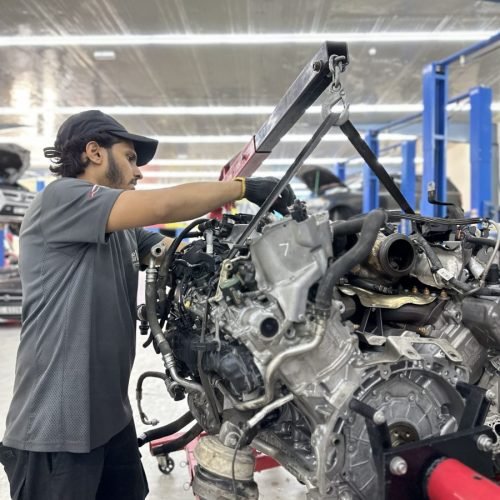Do You Need RoHS Certification A Checklist for Global Exporters
Do You Need RoHS Certification A Checklist for Global Exporters
Running a component manufacturing business in Ghana is like keeping a busy workshop humming—there’s always a new order, a tight deadline, or a client asking for something extra. You’re crafting parts like resistors, capacitors, or connectors, and the pressure’s on to deliver quality that stands out. Ever had a buyer ask, “Are your components RoHS compliant?” and felt a pang of uncertainty? That’s where RoHS certification comes in. It’s not just a fancy label; it’s your key to winning trust, accessing global markets, and showing the world your components are safe and sustainable. Let’s break down why RoHS certification is a game-changer for component manufacturers and suppliers in Ghana, and how it can take your business to the next level.
RoHS Unpacked: What’s It All About?
RoHS stands for Restriction of Hazardous Substances, a directive that started in the EU to limit harmful materials—think lead, mercury, or cadmium—in electronics. For component manufacturers and suppliers, it’s like a safety seal that proves your parts won’t harm users or the environment. Whether you’re making circuit board components in Accra or supplying connectors in Kumasi, RoHS certification shows your products meet strict global standards.
Why does this matter? Because the world’s watching. Buyers in Europe, Asia, and even Africa are demanding RoHS-compliant parts. Without certification, you’re stuck in the slow lane, missing out on contracts or facing rejection in regulated markets. But with it? You’re signaling quality and responsibility, which is pure gold in today’s eco-conscious market.
Ghana’s Component Industry: Ready for the Spotlight
Ghana’s electronics sector is buzzing like a market on a Saturday morning. From small workshops crafting components to larger suppliers feeding assembly lines, the industry’s growing fast. The African Continental Free Trade Area (AfCFTA) is opening doors to new markets, and global demand for Ghanaian-made parts is climbing. But here’s the rub: international buyers expect compliance with standards like RoHS. A 2024 Ghana Export Promotion Authority report flagged that over 55% of local suppliers faced export hurdles due to missing certifications.
RoHS certification is your way to clear those hurdles. It’s not just about meeting rules; it’s about proving your components can compete with the best. Whether you’re supplying parts for solar panels or mobile devices, certification builds trust with clients who care about safety and sustainability—values that resonate deeply in Ghana’s green movement.
What’s Involved in Getting RoHS Certified?
You might be thinking, “Sounds great, but what’s the process?” Fair question. Getting RoHS certification isn’t a walk in the park, but it’s doable with the right approach. Here’s the gist:
- Material Testing: Check your components for restricted substances like lead or phthalates. It’s like making sure your ingredients are fresh before cooking.
- Supply Chain Scrutiny: Ensure your raw materials and sub-suppliers are RoHS-compliant. One weak link can throw everything off.
- Documentation: Keep clear records of your materials and processes. This is your proof that you’re doing things right.
- Lab Testing: Partner with accredited labs to verify compliance. In Ghana, firms like SGS or Intertek can handle this.
- Ongoing Checks: Stay vigilant with regular testing to maintain certification. It’s a commitment, not a one-time task.
Sounds like a lot? It can be, but with expert guidance, it’s manageable. The reward—access to high-value markets and a reputation for quality—makes it worth the effort.
The Heart of It: Why Certification Feels Good
Let’s get real for a second. Manufacturing components in Ghana is no small feat. You’re dealing with tight margins, power fluctuations, and clients who want perfection yesterday. RoHS certification isn’t just about meeting standards; it’s about pride. Knowing your components are safe for users and the planet gives you a sense of purpose. You’re not just making parts—you’re building a better future.
I heard about a supplier in Tema who went for RoHS certification. At first, they grumbled about the cost and paperwork. But when they secured a contract with a European electronics firm, the mood shifted. “It was like we finally proved we belonged,” the manager said. That’s the emotional win—knowing your hard work is recognized on a global stage.
Busting Myths: RoHS Isn’t Just for Big Players
Here’s a common misconception: RoHS certification is only for massive manufacturers with deep pockets. Not true. In Ghana, small and medium enterprises (SMEs) are getting certified and seeing results. Whether you’re a small shop making resistors or a supplier of wiring harnesses, RoHS is within your reach.
Another myth? That certification is a one-and-done deal. Nope. It’s an ongoing process, like keeping your workshop clean—you’ve got to maintain it. But once your systems are in place, it becomes part of your routine, making compliance smoother over time.
How to Get RoHS Certification in Ghana
Ready to jump in? You don’t have to go it alone. Here’s how to make RoHS certification work for your business:
- Work with Experts: Partner with certification bodies like SGS Ghana or Bureau Veritas. They’ll guide you through testing and paperwork.
- Train Your Team: Get your staff up to speed on RoHS requirements. It’s like teaching them the rules of the game before playing.
- Check Your Suppliers: Ensure your raw materials meet RoHS standards. A single non-compliant part can derail your efforts.
- Use Local Labs: Ghana has testing facilities that can verify compliance, saving you time and money compared to overseas labs.
- Stay Informed: RoHS rules evolve, so keep up with updates to stay compliant.
You know what? Providers like Intertek offer RoHS workshops in Ghana that break down the process in plain terms. Some even provide digital tools to track compliance, which is a lifesaver when you’re juggling multiple orders.
The Payoff: Why It’s Worth Your Time
Let’s talk cedi and sense. RoHS certification opens doors to markets that were once out of reach. A 2024 case study from a Ghanaian component supplier showed a 25% boost in export orders after certification. Another manufacturer in Kumasi cut defective returns by 18% after addressing RoHS-related issues, saving thousands in costs. That’s not just money—it’s growth and credibility.
But it’s not just about the numbers. Certification boosts your team’s morale. They know they’re part of something bigger—making components that are safe and trusted worldwide. In Ghana’s competitive electronics market, that’s the kind of edge that sets you apart.
A Quick Tangent: It’s Like Brewing Good Pito
Ever thought about how making components is like brewing a perfect pito? You need the right ingredients, careful mixing, and a bit of patience. RoHS certification is like that—it ensures your “recipe” is safe and high-quality. Whether you’re crafting capacitors or supplying circuit boards, you’re creating something customers can trust, just like a well-brewed drink.
The Challenges: Worth the Grind
Let’s not kid ourselves—getting RoHS certification takes work. Testing can be pricey, especially for small businesses. Auditing your supply chain feels like checking every grain of rice in a sack. And the documentation? It can feel like a second job. But here’s the thing: you don’t have to do it alone. Certification bodies in Ghana offer affordable options for SMEs, and some even provide payment plans.
Another challenge? Getting your team on board. Nobody loves extra paperwork. Involve them early—explain how certification opens new markets. When they see the bigger picture, they’ll be all in. Time’s tight, too, but flexible testing schedules and local labs can ease the squeeze.
Ghana’s Future: Your Components, Global Reach
Ghana’s electronics industry is on the rise, and RoHS certification puts you at the forefront. With AfCFTA creating opportunities across Africa, certified suppliers have a head start. You’re not just meeting standards—you’re setting them, showing the world that Ghanaian components are safe, reliable, and ready for the global market.
Imagine your components powering devices from Accra to Amsterdam, trusted by buyers who value quality and sustainability. That’s what RoHS certification can do. It’s not just about compliance; it’s about building a reputation that lasts.
Your Next Move: Start Today
So, what’s the plan? Reach out to certification bodies like SGS Ghana or Intertek—they’re pros at guiding suppliers through the process. Train your team on RoHS basics to get everyone aligned. And don’t let the upfront effort scare you off. Quality pays dividends, and the sooner you start, the sooner you’ll see the rewards.
You know what’s exciting? The moment you get that certification and land your first big international order. That’s the power of RoHS certification in Ghana. It’s not just a standard—it’s your business stepping into the global spotlight, ready to shine. Ready to make it happen?








